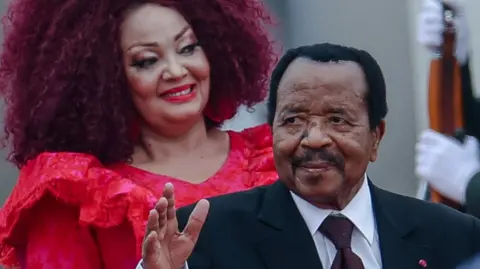Even before the world’s oldest president confirmed his eighth-term bid, his social media accounts had already signalled his intentions.
By the time 92-year-old Paul Biya officially declared his candidacy last week, he had spent months increasing his online presence.
Daily posts on Facebook and X (formerly Twitter) mark a sharp shift from his previously rare digital appearances.
His team now publishes excerpts from over 300 speeches delivered across his 43-year rule, in both French and English.
But analysts say Biya’s digital push may be missing the mark with young voters.
Disconnected Messaging in a Young Nation
Cameroon has over 5.4 million social media users. Yet “95% of young people rely on WhatsApp—a platform where presidential communication is nearly non-existent,” says Rostant Tane, director of Media Intelligence Sarl and author of the Cameroon 2024 Multimedia Audience Study.
He adds: “There’s no regional segmentation, no interactivity, and very little effort to speak the digital language of young people.”
Another issue is authenticity. “Many know that it is not Paul Biya himself who is writing—which creates distance and limits trust,” says Hervé Tiwa, a lecturer in communication sciences.
“Their communication remains very top-down without any real interaction—comments ignored or deleted, a lack of personalised responses… This gives the impression of a strategy that is more cosmetic than participatory.”
This matters because Cameroon’s population is overwhelmingly young. Over 60% are under 25, and more than half of registered voters are under 30.
“Political communication must serve democracy and transparency, and not just be used as a marketing tool,” says 27-year-old communications specialist Ulrich Donfack.
Falone Ngu, also 27, agrees: “Cameroon’s youth are not just looking for flashy graphics or slogans on the media! They want opportunities, change and hope.” She did, however, praise Biya’s team for recognising that “leadership and digitalisation go hand in hand.”
Old Speeches, New Doubts
Instead of addressing unemployment, corruption, or insecurity—issues that dominate youth concerns—Biya’s posts often highlight his past achievements. One recent post quoted a 2000 speech that criticised leaders who “lecture others but fail to preach by example.” It came just days after a long-time ally publicly broke ranks.
Communication strategist Aristide Mabatto says the approach feels outdated. “It’s a narrative built on legacy, not relevance,” he notes.
Still, Tiwa sees progress: “His communication used to be limited to official decrees and state addresses. The shift to frequent digital messaging shows a deliberate effort to reclaim the narrative and appear more present.”
Biya’s prolonged absence from public view last year—over six weeks—sparked rumours of ill health and even death. His recent online activity is seen by supporters as proof of vitality. State media like Cameroon Tribune have praised the effort.
But online reactions tell a different story. “It looks like he’s discovering the internet in 2025, but it’s primarily an electoral market test,” wrote one user. “Cameroonians want roads, not hashtags,” said another.
Entrepreneur Che Arnold, 32, summed it up: “It needs to go beyond tweets, Facebook messages and a simple online presence to promote political reforms but also solve real social problems.”
With the election set for October 12, Biya’s digital gamble will soon face its biggest test: the ballot box.
Rate, Like 👍, Comment💬, share this article, Follow us on our social media handles, and Submit your own story to get featured and earn rewards!






